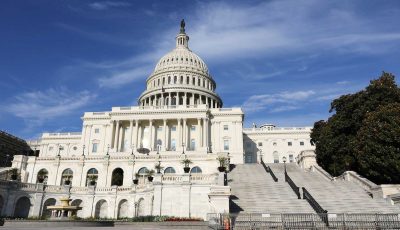SABLAN, 12 OTHER LAWMAKERS TO US AG, ACTING SOLICITOR GENERAL
‘Stop defending in court unconstitutional policy on SSI benefits’

Sablan
The U.S. House Committee on Natural Resources, of which Delegate Gregorio Kilili C. Sablan (Ind-MP) is vice chairman, urged Attorney General Merrick Garland and acting Solicitor General Elizabeth Prelogar yesterday to stop defending in court the alleged unconstitutional policy of automatically stopping Supplemental Security Income benefits to Americans who move to certain U.S. territories.
Committee chair Raul M. Grijalva (D-Arizona) and Sablan, along with 11 other members, informed Garland and Prelogar in a letter that they are working with the Biden-Harris administration for a possible legislative fix.
The lawmakers said the SSI program is a critical lifeline for vulnerable, low-income Americans who are aged, blind, or disabled and rely on SSI to provide them with a basic income and avoid extreme poverty. Today, more than 8 million U.S. citizens receive SSI benefits of up to $783 a month, they said.
“Yet, should any of these Americans move to certain U.S. territories, their SSI benefits automatically stop, even as the personal financial challenges they face due to age or disability do not,” the lawmakers said. They said this is not just wrong, but also unconstitutional.
The lawmakers pointed out that multiple federal courts have stepped in over the last several years to rule that arbitrarily excluding U.S. citizens who live in the territories from being able to participate in national federal benefits program is unconstitutional.
They cited the U.S. v. Vaello Madero case in which the U.S. Court of Appeals for the First Circuit unanimously upheld a district court’s decision that rejected attempts by the U.S. to collect $28,081 in SSI benefits that it had paid to Jose Luis Vaello Madero after he moved from New York to Puerto Rico. The Court of Appeals held that the denial of these benefits based solely on Madero’s residence in Puerto Rico would violate his constitutional guarantee to equal protection of the laws.
The lawmakers also cited, among other cases, the Schaller v. U.S. Social Security Administration in which a federal district court judge in Guam similarly ruled that denyomg SSI benefits to a disabled woman in Guam while providing SSI benefits to her similarly disabled twin in Pennsylvania violates the U.S. Constitution’s guarantee of equal protection.
They said that on March 1, 2021, the Supreme Court said it will review the Madero case, meaning that the U.S. Department of Justice will have to decide soon how it will proceed on these issues before the high court.
The lawmakers said DOJ’s position has been to seek reversal in each of these cases, arguing that the unanimous view of the six federal judges that have ruled in these cases is wrong.
They said while they recognize it is DOJ’s role to defend federal statutes, the offensive and illogical arguments DOJ has made to justify the second-class treatment of U.S. citizens living in the territories highlight why it would be appropriate for DOJ to stop defending this ongoing discrimination, which harms U.S. citizens in Puerto Rico and other territories every day.
The lawmakers said that none of these DOJ’s arguments explain why residents of different territories can be treated differently for purposes of national benefits programs.
They cited an example that residents of the CNMI are eligible to receive SSI and residents of Guam and the U.S. Virgin Islands are eligible for Supplemental Nutrition Assistance Program, while residents of other territories are arbitrarily denied these benefits.
“That is not to say that Congress does not have broad powers with respect to the territories; we do. But Congress does not have the power to treat residents of the territories arbitrarily when it is acting as a national legislature to enact national social safety net programs,” they said.



























